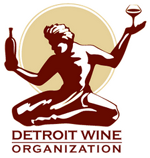America’s Pacific Northwest Wine Appellations
Washington and Oregon are premier wine growing regions, each with diverse geography, climates and soils. Combined, the states have 20 American Viticulture Areas, where high quality grapes are grown and made into unique wines with character.
A Unique Place
The Pacific Northwest climate is ideal for growing a variety of wine grapes and producing high quality wine. This means that a bottle of Oregon or Washington wine shows a distinct sense of place.
Their wine communities, made up primarily of small producers who strive for quality, are environmentally and socially responsible. Winemakers and growers share a passion for the craft and a collaborative spirit that helps the region consistently produce world-class wines. Winemakers from all parts of the world have come to the Pacific Northwest, drawn to this region and committed to crafting wine reflective of this special place.
History and Facts
Developed in earnest in the 1960s, Oregon and Washington wine industries have grown steadily and matured in just 40 years, earning world-class reputations.
Oregon
- 15 approved wine growing regions
- More than 300 wineries
- 700 vineyards and 14,100 planted species
- Nearly 500 wineries
- 350 vineyards
- Over 30,000 planted acres and more than 20 grape varietals thrive in the state.
The Pacific Northwest has long been known for its pristine surroundings and dedication to an environmentally friendly lifestyle, so naturally, sustainable viticulture is prevalent in Oregon and Washington’s wine industries.
Oregon’s winemakers are stewards for the land with a collective passion for growing fruit and making wine in a sustainable manner. A significant portion of the state’s vineyard acreage is certified as sustainable, organic or bio dynamic. Oregon is home to the LIVE Certified Sustainable program, Oregon Tilth (organic certifying agency) and Demeter USA (bio dynamic certifying agency). Even among the many Oregon vineyards that aren’t officially certified, sustainability is both a priority and a lifestyle. And the benefits are two-fold: the practices are gentle on the earth and many winemakers believe they result in brighter, more flavorful wine that better reflect the characteristics of the land from which they are grown.
Washington’s grape growers are equally committed to sustainable viticulture practices in order to minimize damage to the environment and maximize grape quality. Many vineyards are certified organic, and several prominent growers are experimenting with bio dynamic techniques. Vinea, a program launched in the Wall Walla Valley, promotes environmentally friendly and socially responsible viticulture practices. Their mission is to develop and implement a sustainable vineyard management program, synonymous with the Wall Walla Valley, internationally recognized for its strict environmental stands and high quality farming practices.
Jevon is a board member


Leave A Comment